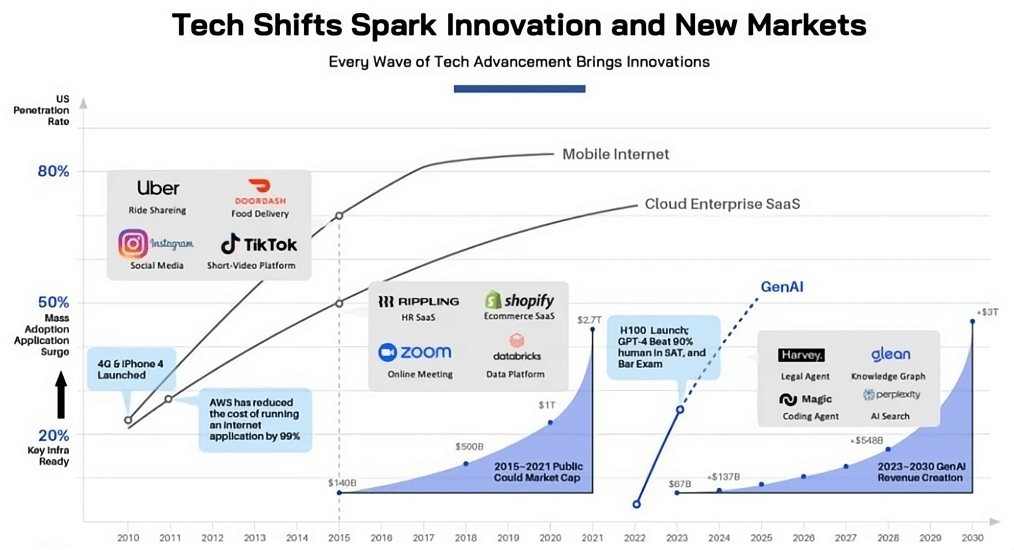As 2025 approaches, executives are still grappling with familiar challenges. However, new strategies emerging this year will reshape how they respond. Leaders will extend FinOps practices beyond the cloud, lean on vendors to leverage AI agents, and improve digital literacy to address talent shortages. In 2024, CIOs worked hard to keep up with rapid technological evolution, navigate a dizzying array of vendor solutions, and adapt to global regulatory changes.

Here are the five trends that will shape the role of CIOs in 2025:
1. FinOps Expands Beyond the Cloud ☁️💰
Initially born in the cloud to help IT and finance teams control skyrocketing enterprise cloud bills, FinOps has shown such effectiveness that it has naturally spread across the IT ecosystem. Now, it supports cost optimization not just in software spending but also in data centers.
Jay Litkey, Senior VP of Cloud and FinOps at Flexera, notes that AI is entering the FinOps realm:
"While FinOps initially focused on the cloud, even the FinOps Foundation now avoids prefixing it with 'cloud.'"
Litkey highlighted significant opportunities to optimize enterprise software procurement, revealing that businesses often overpay for software due to neglecting licensing portability clauses. For example, many on-premise licenses can legally be used in the cloud, saving companies millions.
With AI costs rising without clear returns, executives are becoming increasingly concerned:
“AI is the new cloud. Everyone is using it, but no one knows exactly how much they’re spending,” says Litkey.
2. Vendors to Drive AI Agent Proliferation 🤖🚀
AI vendors are shifting toward autonomous capabilities and services. AI agents are no longer limited to responding to prompts; they can now decide on their next actions without human guidance.
In 2025, the range of enterprise-ready AI agent use cases is set to expand, with vendors like Meta, Microsoft, Google, SAP, and Salesforce taking the lead.
For example, Hadley Griffin, Product Manager for Microsoft Office AI, stated:
"AI agents can assist with prioritizing leads, scheduling meetings, fulfilling orders, and much more, ranging from simple prompts to full autonomy."
Despite the potential, nearly 90% of CIOs admit their current tech stacks need upgrades before deploying AI agents, according to a Tray.ai survey.
3. CIOs Eyeing the CEO Role 👔📈
Over the past decade, the CIO role has grown in strategic importance, bridging technology strategy with financial outcomes. As a result, more CIOs are setting their sights on the CEO position.
According to Info-Tech Research Group, nearly a quarter of CIOs consider CEO as their ultimate career goal.
Brittany Lutes, Research Director at Info-Tech, explains:
"The skillset needed at the highest levels of leadership is increasingly tech-focused."
Moreover, Gartner’s Daniel Sanchez Reina observes that more CIOs now report to COOs rather than CFOs, reflecting technology's critical role in operations. This shift enables CIOs to impact enterprise-wide strategies.
4. AI Governance Challenges Persist ⚖️🧠
Governance remains a top priority as businesses struggle to scale AI responsibly and compliantly.
Felix Van de Maele, CEO of Collibra, emphasizes:
"Without a solid governance foundation, large-scale AI implementation is impossible."
Ongoing regulatory changes and a lack of expertise leave many organizations vulnerable. A survey by Omdia found that fewer than half of enterprises comply with current AI laws or are actively working toward compliance.
The stakes are rising, especially for businesses looking to integrate AI agents. As Van de Maele puts it:
"The need for control and confidence is growing, but many organizations are not prepared."
5. Boosting Digital Literacy Around AI 💡📚
To overcome talent shortages and maximize the potential of tech tools, CIOs are prioritizing digital literacy, especially in AI.
Seth Robinson, VP of Industry Research at CompTIA, notes:
“Digital literacy—including working knowledge of AI—is now a must-have skill across the workforce.”
In 2025, two-thirds of companies plan to train employees to close IT skill gaps in areas like cybersecurity, software, and data management, up from 59% in 2024.
Vendors like Cisco, Microsoft, and Google are supporting this effort by launching free and low-cost AI training initiatives. For example, a coalition led by these tech giants aims to upskill 100 million tech workers over the next decade.
Frank Weishaupt, CEO of Owl Labs, highlights the importance of integrating AI into company processes:
“It’s not just about putting an article in the knowledge base; it’s about transforming how you communicate and making AI a central part of the company culture.”
Conclusion
As 2025 unfolds, CIOs face both challenges and opportunities. By embracing FinOps, leveraging AI agents, aiming for leadership roles, tackling governance hurdles, and fostering digital literacy, CIOs are poised to lead enterprises into a more innovative and efficient future. 🌟







